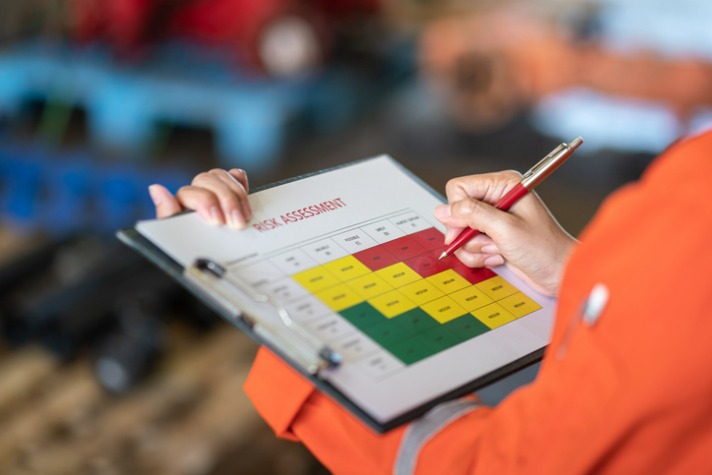8 workplace safety tips to keep you safe at work
Published by MAXSolutions on March 09, 2023

While Australia is a relatively safe country, accidents and injuries in the workplace still occur fairly consistently and across many different industries.
Workplace safety is everyone’s responsibility but what it means to be safe at work will differ depending on your industry or role.
Some industries may be more prone to traumatic physical injuries, while others may have more risk to mental health or the development of long-term health issues.
The following tips are a great starting point for you to start thinking about health and safety at work and how you can ensure you get home safe every day.
Be aware of your surroundings
Many of the injuries typically sustained at work may have been avoidable by being more aware of what is going on around you.
In fact, the bulk of injuries that occurred in 2021 were from one of the following:
- Falls, trips and slips of a person.
- Being hit by moving objects.
- Hitting objects with a part of the body.
So, if you are making sure your pathways and workspaces are clear of trip hazards, other people and you are focussed on your immediate surroundings and not on a device, you are going a long way to remaining safe at work.
Know your body
Another significant contributor to workplace injuries is stress on the body.
Knowing when to take a rest, hydrate or ask for a hand on a physically difficult task are all crucial to ensure you don’t injure yourself.
Only you know the limits of your body so if the task is behind your capabilities don’t keep quiet and struggle, speak up.
Your employer doesn’t want you injured either and your good health is in their best interest too!
Ask questions and understand your task
When performing a new task make sure to be comfortable with your understanding of how to perform it as well as others involved in the task.
A lot of workplace safety issues can arise from simple misunderstandings.
Not knowing exactly what you are supposed to be doing, how to use certain tools or materials, or how the team is supposed to work together can all contribute to unsafe work.
There is no such thing as a silly question when you are trying to be safe at work!
Wear protective equipment
Injuries due to environmental factors or chemicals and substances could be avoided by wearing the correct personal protective equipment (PPE).
It’s important to note that if the equipment does not fit you correctly then that PPE is not helping you stay safe.
When at work it is a requirement of businesses to provide you with adequate PPE to perform your job so don’t accept a situation that you believe to be unsafe.
Don’t rush
You may have been on the job for years and know your role inside and out. But that doesn’t mean its okay to skip steps or safety checks.
These safety checks exist for a reason, to keep you and others from getting hurt.
Speak up
If you have a niggle or nagging physical issue don’t try and tough it out. Seek out your boss for other ways you can do a task or for better tools to make your job easier.
So too if you have a concern about a particular job you have been asked to do that you may feel is unsafe.
You may injure yourself or others by getting stuck into a project that just didn’t feel right.
If you think there is a legitimate risk of injury you have the right to refuse to do a job until it is safe to do.
Build good habits
Being safe at work isn’t just about the immediate risk of physical injury, long-term health conditions or mental health conditions can arise from unsafe work over time.
Building good habits to help you deal with the stresses of your workplace or personal life can mean many things at work or at home.
These could include:
- A regular sleep schedule that fits your activity levels and works in with your lifestyle and work hours.
- A controlled diet that is light on refined or packaged foods and includes lots of fruit and vegetables that you can stick to at work
- Maintaining your physical fitness both for your health and to meet the demands of your job.
- Time to wind down with friends and family and with yourself by enjoying your hobbies.
Keep your skills current
Technology is changing all the time and so is our understanding of the world.
With that comes new and sometimes better ways of doing things.
Maintaining your skills by staying current with industry trends and undertaking professional development will help keep you safe at work.
This Article was written under the review of Dr Evelyn Wong.
Evelyn is a medical advisor at Injurynet Australia.
She has over 13 years’ experience working as a doctor in occupational health and hospital settings and is currently completing her Graduate Diploma in Occupational & Environmental Medicine.
Share
Tags
Found this useful?
Help and advice
Our blogs are about helping people seek the information that they need for their steps in the workforce.














_1.jpg)





























.jpeg)

















